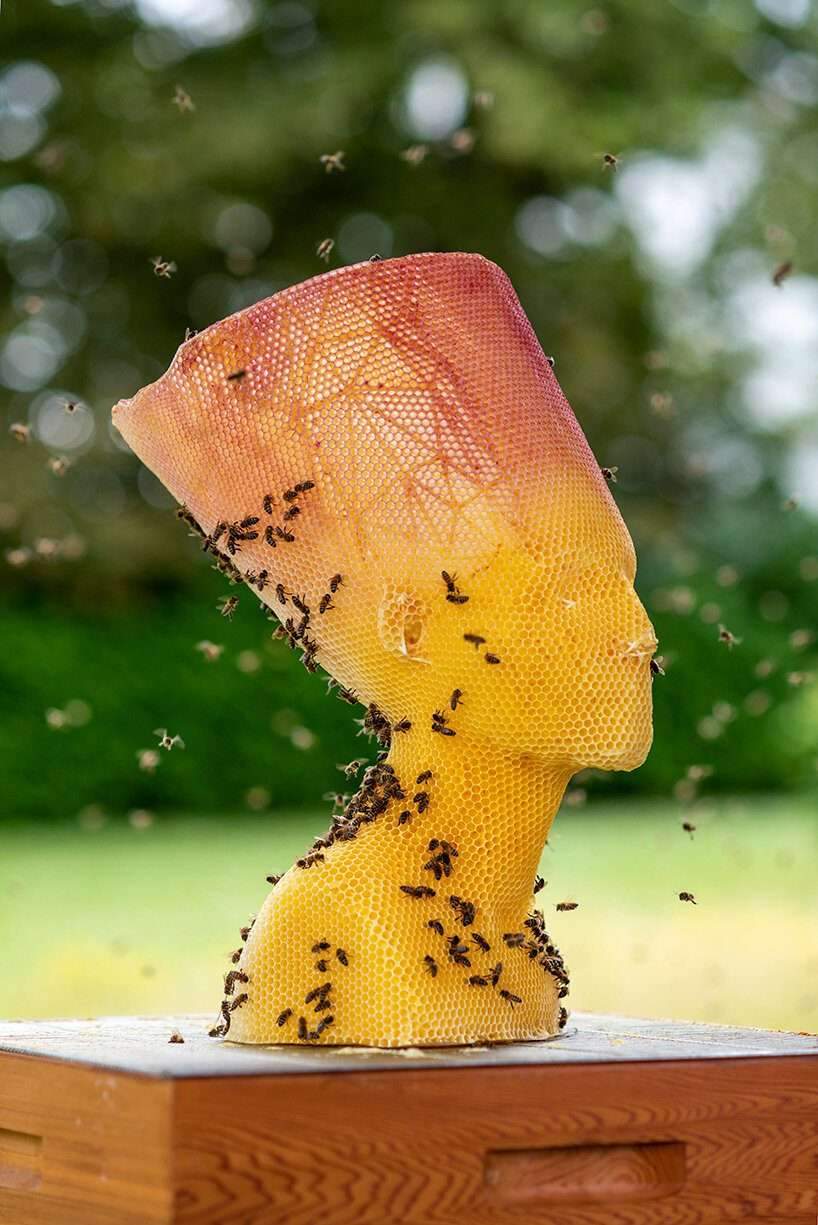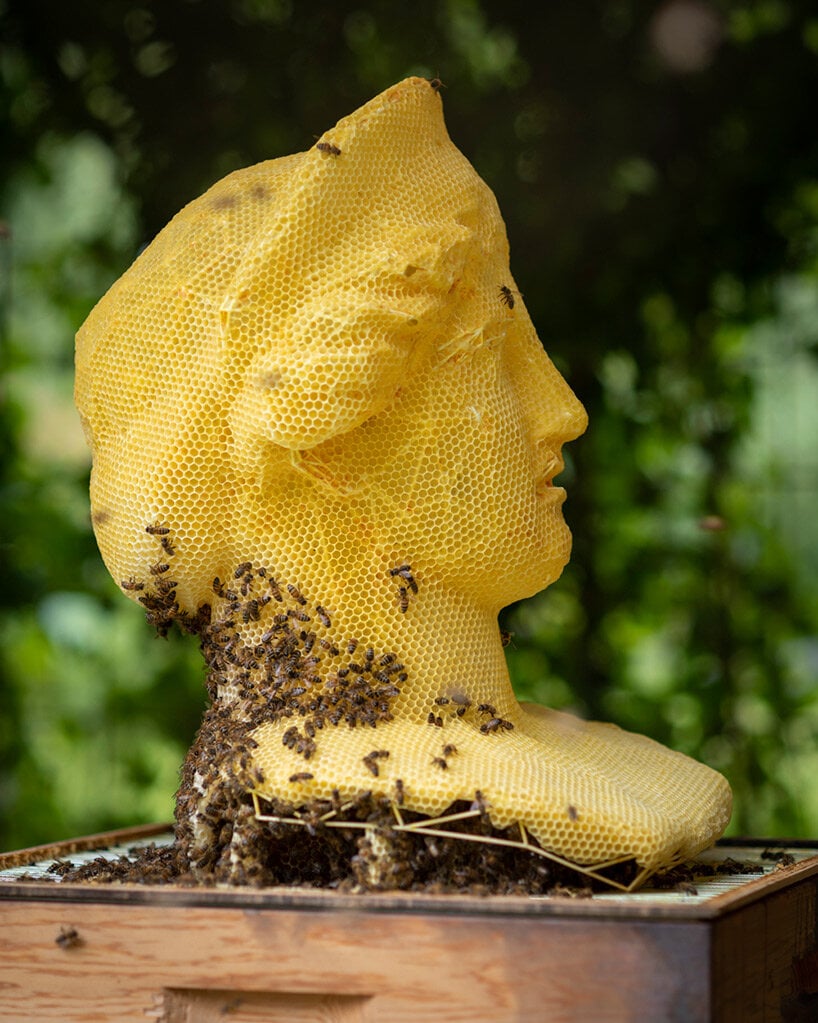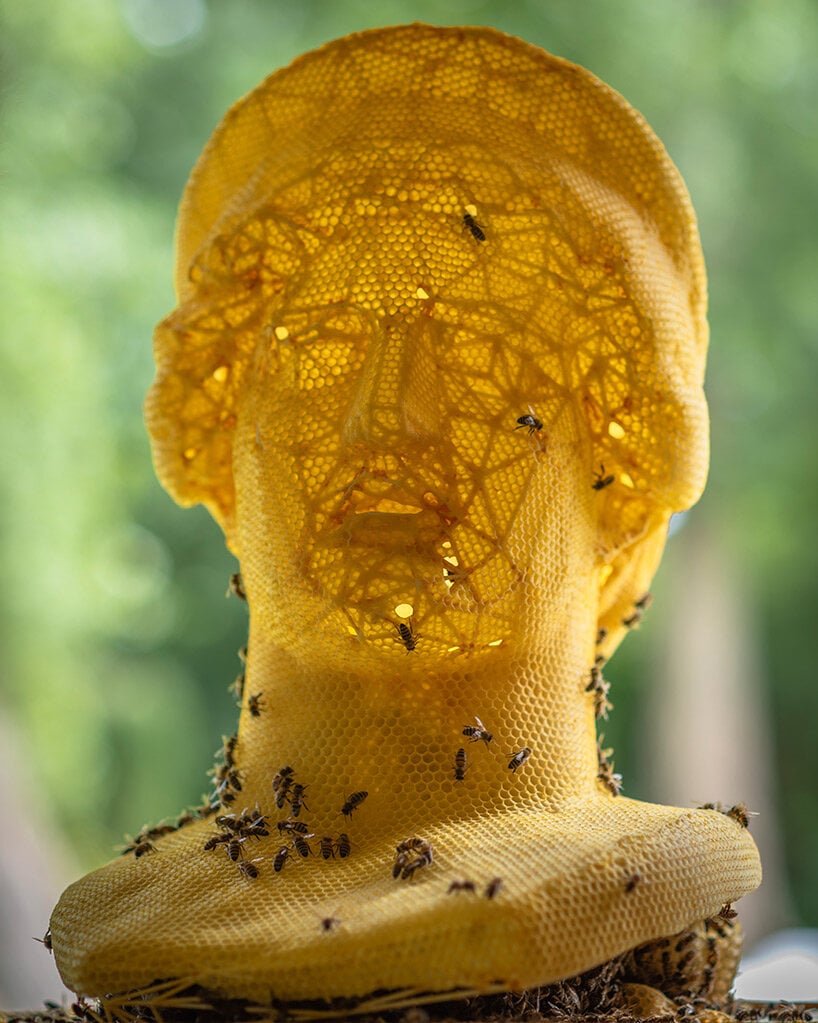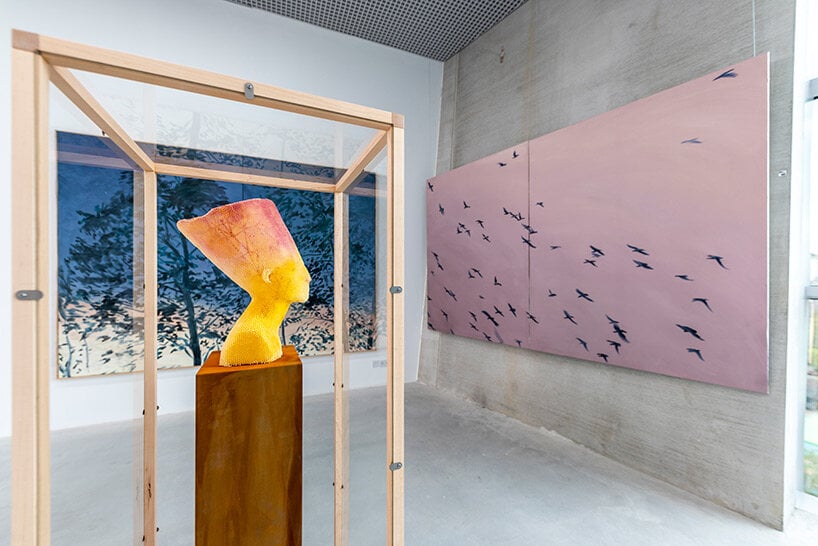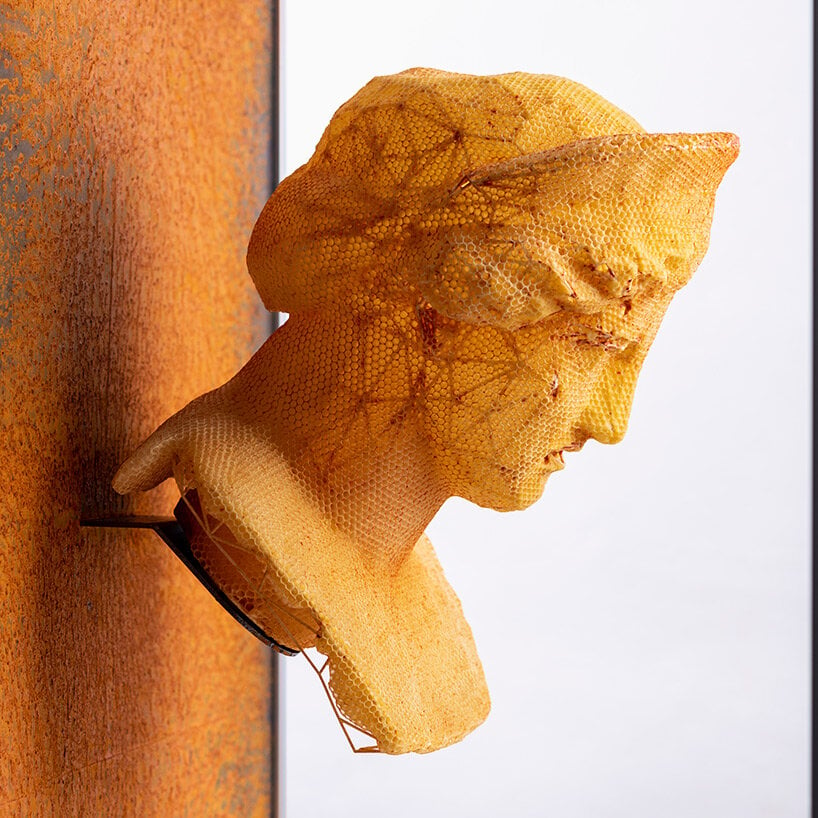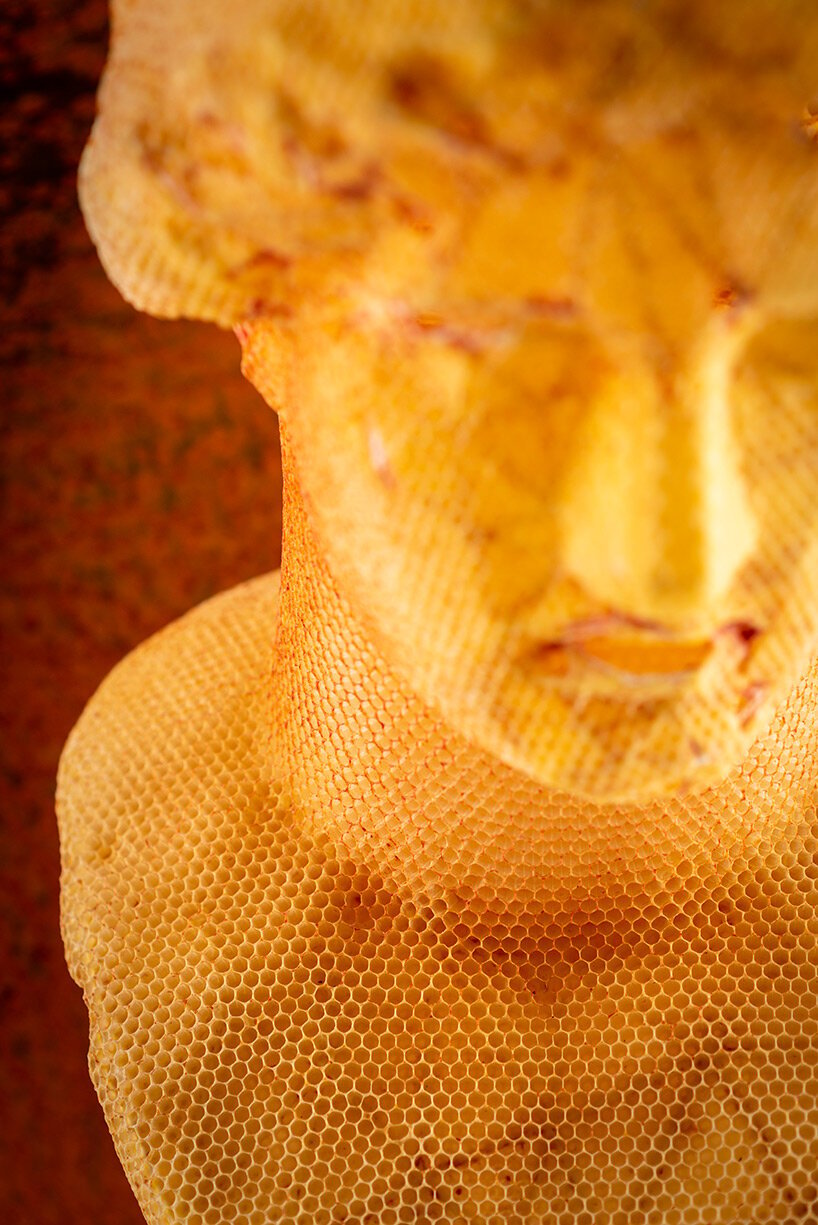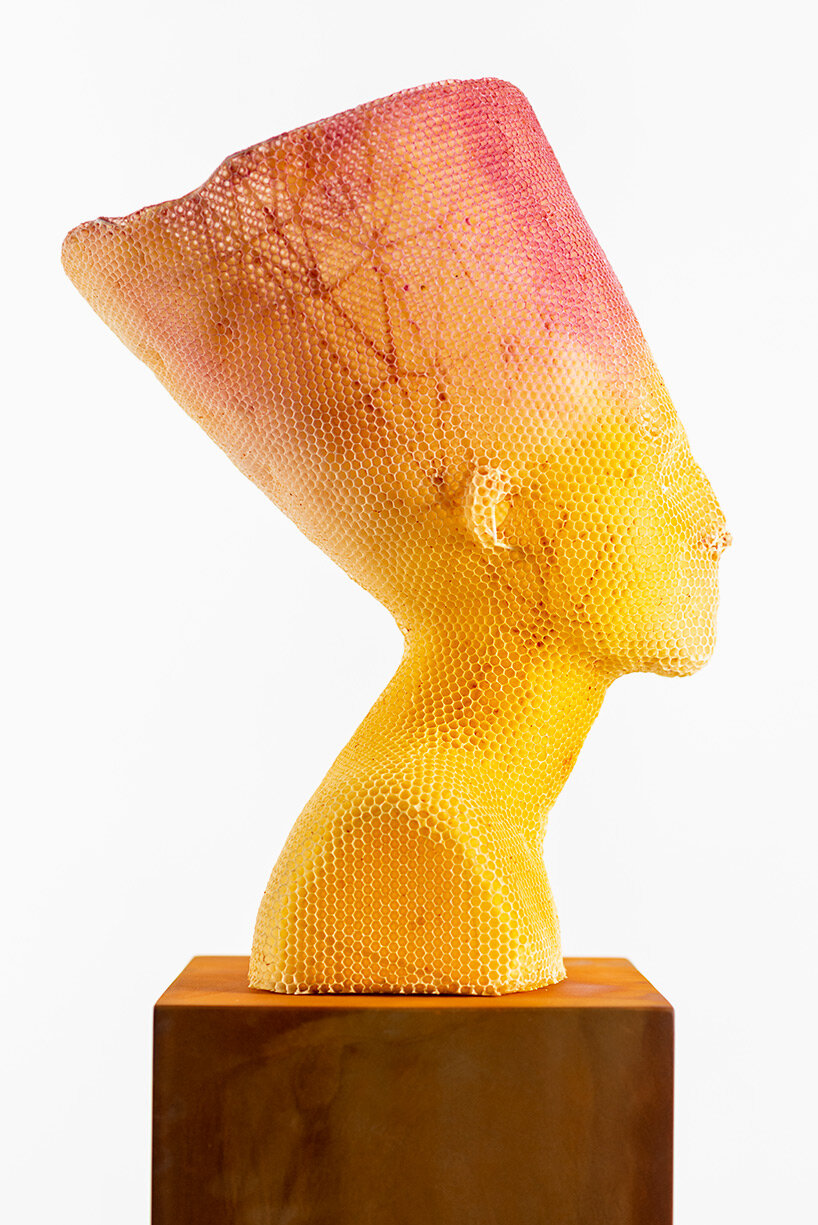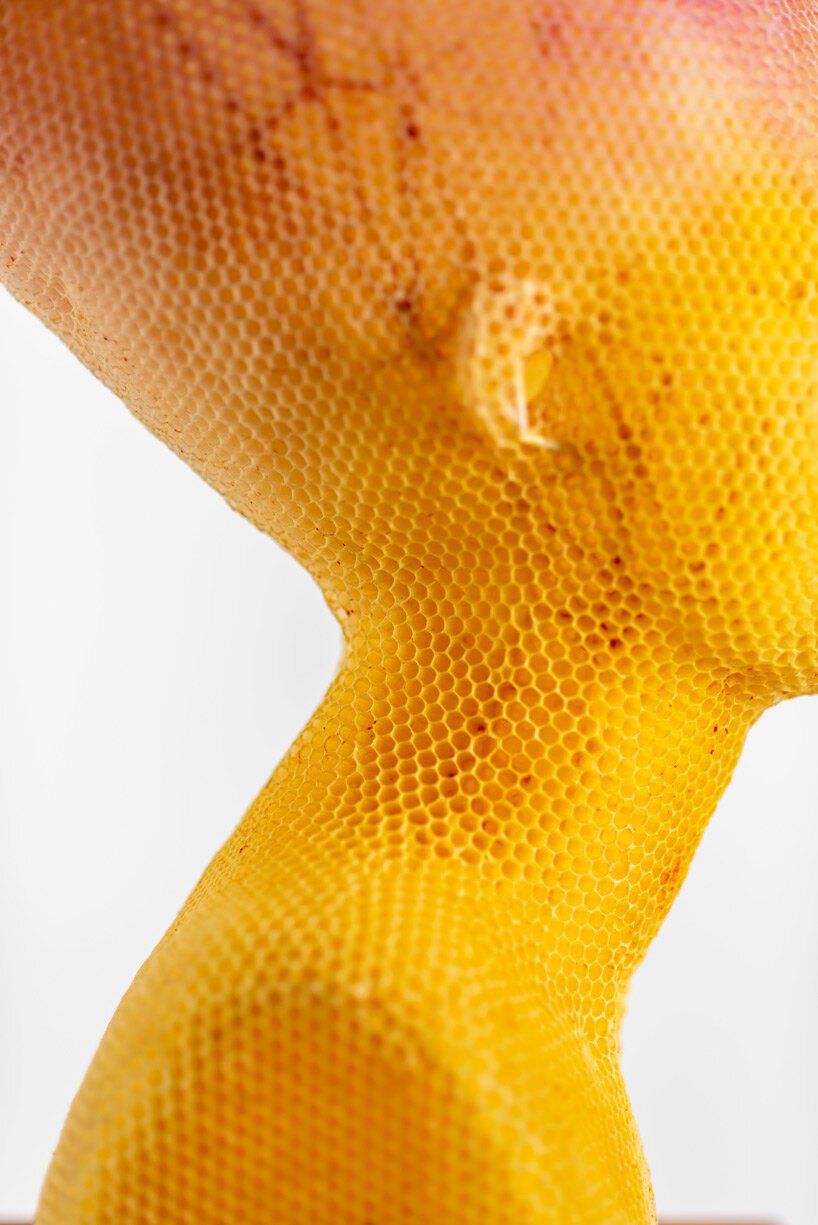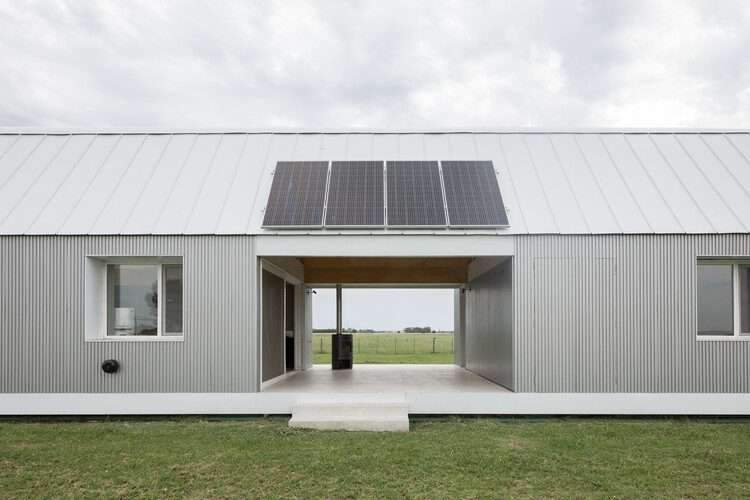tomáš libertíny’s beeswax busts of hera and nefertiti translate vulnerability into strength
New works by Tomáš Libertíny
Continuing his exploration of beauty and intelligence in nature, Tomáš Libertíny has added two more natural beeswax sculptures to his expansive collection. Drawing on his personal struggles, the Rotterdam-based artist has created a bust of Hera, wife of Zeus, and a second iteration of the bust of Nefertiti, Queen of Egypt, addressing themes of depression and anxiety, the experience of abortion, and the pain of divorce of his parents. Both works were completed with the help of thousands of bees kept at a newly established bee farm in Rotterdam.
Eternity is the second version of the artist’s Nefertiti bust | all images courtesy of Tomáš Libertíny
the lakeside beefarm in rotterdam
In addition to his existing bee farm in Slovakia (started in 2020), Tomáš Libertíny has launched a new bee farm (as of 2021) called Lakeside Beefarm in Rotterdam in collaboration with Lakeside Capital Partners. The new bee farm is dedicated to producing the Slovakian-born artist’s work and keeping the bees in the most environmentally friendly way possible. In this new farm, a new special breed of queens has been introduced. The colonies of the queens have a natural instinct to get rid of varroa mites themselves. This means that no chemicals are used in beekeeping to maintain a healthy colony.
The result was a series of new designs that are very intimate and reflect the artist’s personal struggles. Being a very private person, Libertíny shied away from letting his work be overshadowed by an inner turmoil that kept trying to manifest itself.
Tomáš Libertíny has created a bust of Hera made of natural beeswax
Hera, goddess of marriage and protector of women in childbirth
The Hera bust was made by bees from natural beeswax over a period of a whole season and strongly resembles the famous Hera Barberini made of marble. In ancient Greek religion, Hera, wife of Zeus, is the goddess of marriage, women, and family as well as the protector of women in childbirth.‘Hera is a deeply personal and biographical work,’ shares Tomáš Libertíny. The artist had to cope with a heavy loss caused by the experience of abortion and the pain it caused for both partners. Moreover, after the early divorce of his parents, the family has always been for him a symbol of a revered unity, but also of fear.
Nature, symbolically represented by the honeybee colony, is constantly renewing itself through the cycle of birth and death. In this process, something immaterial is passed on. ‘Our personal salvation is in the eternity of life’s hard-wired ambition to live and procreate.’ shares the artist. ‘In this process, Hera symbolically watches over us with grace and understanding.’
Hera is currently on view at the exhibition ‘Leven an laten leven / Live and let live’ at the Museum Jan Cunen from January 29 to May 29, 2023.
the beeswax sculpture strongly resembles the famous Hera Barberini made of marble
Nefertiti as a symbol of fragility and strength
The fight against depression and anxiety has always been a constant personal struggle of Tomáš Libertíny. Being vulnerable and seeing this as a strength and not a weakness became the main theme in his art since 2005 and his work with honeybees. The honeycomb sculptures are by definition extremely fragile works of art, but beeswax is also one of the most durable natural materials and will last thousands of years.
Two years after the first version of the Nefertiti bust, the artist has returned with a second iteration called ‘Eternity’. The experiment in this new piece was to introduce a natural red pigment (as found in prehistoric cave paintings) into a beehive so that the 60,000 bees could naturally incorporate the red pigment into the sculpture. The allusion to earth, flesh, or blood of the crown is palpable. The bust is based on the 3D model of the original portrait of the Egyptian queen (made in 1345 BC and now on display at the Neues Museum in Berlin). It is a nod to the strength and timelessness of ‘Mother Nature’ as well as her ancient character as a powerful woman ruling against all odds. Queen Nefertiti and her husband Pharaoh Akhenaten were famous for abandoning the polytheism of ancient Egypt and introducing the sun god Aten, albeit unsuccessfully. Eternity ultimately serves as a symbol of the duality of life and nature, fragile yet strong.
Eternity was recently exhibited in ‘Harvest 2022 Lakeside Collection’ at the DEPOT Museum Boijmans van Beuningen, Rotterdam from August to October 2022.
Eternity was recently exhibited at the DEPOT Museum Boijmans van Beuningen, in Rotterdam
‘Hera is a deeply personal and biographical work,’ shares Tomáš Libertíny
‘Hera symbolically watches over us with grace and understanding.’
detail of the Hera bust
the new Eternity piece introduces a natural red pigment
detail of the Eternity bust
project info:
name: Hera and Eternity
artist: Tomáš Libertíny
myrto katsikopoulou I designboom
feb 20, 2023

